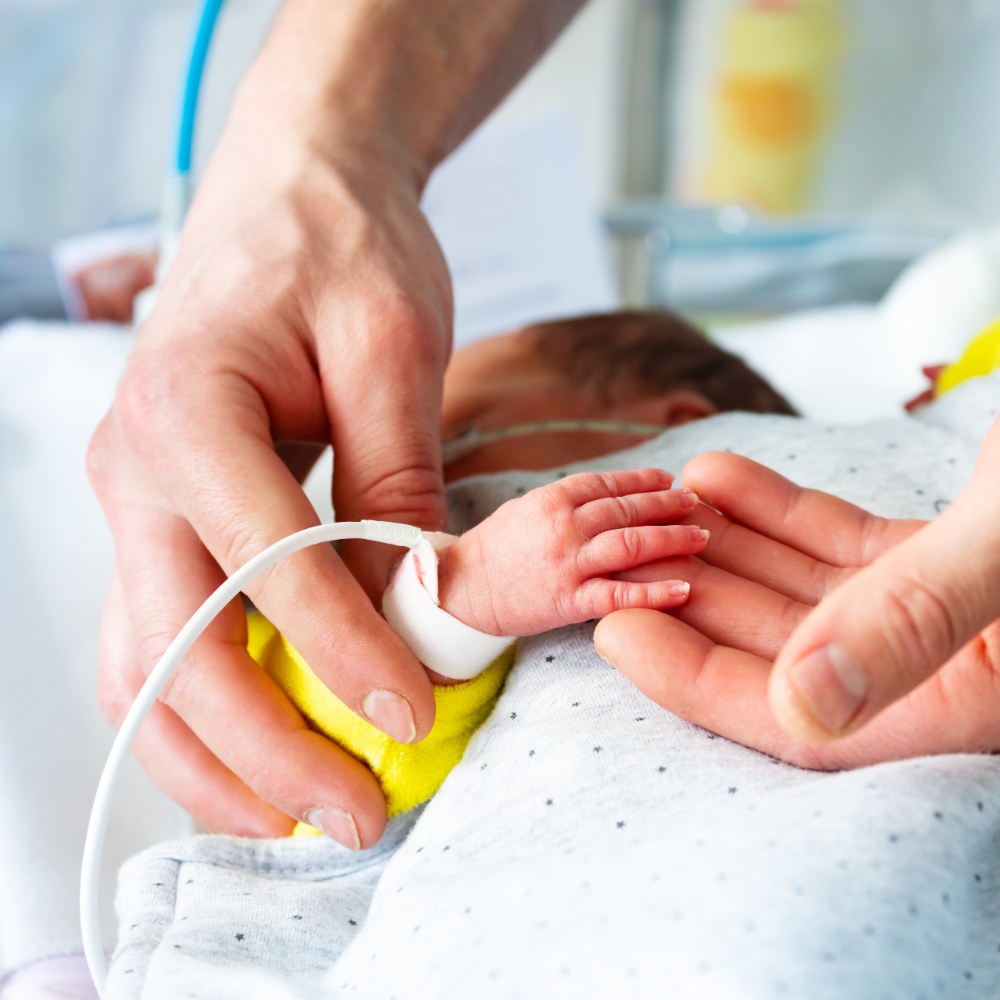Newly updated SENSE program to continue benefiting neonatal ICU infants and their families
July 25, 2022
Second edition of the sensory-based program already in place at more than 400 NICUs is available now to NICU providers, therapists.
Clinical Community and Partners Faculty
By Mike McNulty
This month, the SENSE II program rolls out to neonatal health care professionals in hospitals across the world. The Supporting and Enhancing NICU Sensory Experiences, 2nd edition is an anticipated update of the SENSE program, a comprehensive approach to ensuring high-risk infants are exposed to positive sensory experiences during their stay in the neonatal intensive care unit. The program aims to educate and engage families so they can provide infants with developmentally appropriate, positive sensory exposures each day of hospitalization.
“High-risk infants in the NICU are exposed to noxious and procedural touch as part of necessary medical care,” said Assistant Professor Bobbi Pineda, the program’s co-author. “However, there is a large body of research identifying the importance of parent participation at the bedside and the importance of positive sensory exposures. Appropriate types and amounts of positive sensory exposures can improve brain development and optimize neurodevelopmental outcomes, while also boosting the parents’ participation and confidence in their role.”
Pineda is an occupational therapist and scientist who has worked in NICUs, both in clinical and research roles, for nearly 30 years. She also knows what it’s like to experience the NICU from a parental perspective, as her own children once required NICU stays.
The program’s other co-author is Joan Smith, a neonatal nurse practitioner and the director of quality, safety, and practice excellence at St. Louis Children’s Hospital.
SENSE II updates the original program launched by Pineda and colleagues in 2017. The SENSE program is implemented in a NICU under the supervision of an occupational therapist, physical therapist, speech-language pathologist, or other licensed NICU professional such as a physician, registered nurse, or nurse practitioner. Neonatal therapists are most often implementing the program and educating families to ensure the infant can tolerate the interventions as described, make adaptations as needed and advance the program as the baby grows.
Since the SENSE program’s original release, Pineda and colleagues have studied the program, its efficacy and outcomes. During the past five years, clinicians at more than 400 hospitals across the United States and throughout the world have implemented the SENSE program.
A user fee offsets the cost of materials sent to interested hospitals and also supports their online availability as digital downloads. The implementation of the SENSE program in a real-world context not only provides an additional area for research, but is poised to make a significant impact and drastically change the early NICU experience.
“What excites me most is the large number of hospitals using the materials to improve care in the NICU and the enormous impact this can have on the lives of babies and families in the NICU,” Pineda said.
Updates include gender-neutral language, minimum dosing requirement
The SENSE program parent education materials cover a number of relevant topics including medical terminology, fetal development, the sensory environment in the NICU, sensory development, reading and responding to infant cues, identifying infant readiness for sensory exposures, and descriptions of ways to provide different sensory exposures. It includes a week-by-week guide on specific dosing and timing of tactile, auditory, visual, olfactory and kinesthetic/vestibular activities to ensure that parents can consistently deliver positive sensory experiences across the senses. While these sensory interventions are intended to be provided by parents, the professional care team can also be engaged in order to help meet an infant’s individual sensory needs.
SENSE II builds upon the program’s 2017 foundations, and the revision ensures that the program remains rooted in current evidence. The updating process included an integrative review of studies on sensory interventions with high-risk infants from the past five years, and a review by a multidisciplinary advisory team, including parents. The NICU Therapy Lab — including Research Coordinator Polly Kellner, Marinthea Richter OTD ’20, PhD ’25, Bethany Gruskin PhD ’26, Delaney Smith MA ’21, OTD ’22 and Carolyn Ibrahim — has been instrumental in bringing SENSE II to fruition.
SENSE II incorporates a number of timely updates. Gender-neutral language is used throughout in recognition of diverse forms of parents and families, and language and terminology are expanded to be more inclusive of the different ways parents fulfill their roles. The new materials emphasize the program’s minimum dosing requirement, in order to encourage increased use of the interventions, as appropriate. Recently published literature on sensory interventions with high-risk infants was also incorporated with some variations in the way visual, olfactory and kinesthetic interventions can be conducted.
“Putting together the updated SENSE II program was a tremendous amount of work, but it is important to do such updates routinely as new evidence is emerging constantly,” Pineda said. “We want the most updated interventions to be used to optimize the early environment, and this requires a commitment to keeping it updated every five years.”
The original SENSE materials have been translated into Spanish, Hebrew and Hindi, and additional translations are underway in Chinese, German, Arabic and French Canadian.
“I am grateful for all of the interest in the SENSE program,” Pineda said. “I look forward to learning more in the coming years about the impact of sensory exposures on high-risk infants in the NICU.”
For more information about SENSE II or to pay a user fee to implement the program in the NICU where you work, please visit chan.usc.edu/nicu/sense.
⋯
Next by tag Clinical ⟩ Community and Partners ⟩ Faculty ⟩






